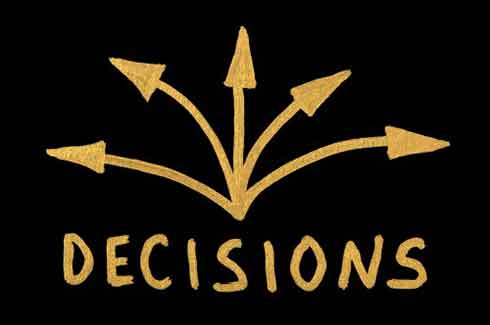Whether it's a business or personal decision, there are a number of ways to make sure you're making the best possible choices. You need to consider the short and long-term impacts of your decisions and get expert feedback before you take action.
Get feedback from an expert

Getting feedback from an expert is not for the faint of heart. Fortunately, there are a number of techniques to ensure that you are not left out in the cold. The best place to begin is by picking the brains of a few trusted peers. Ideally, this will include the experts themselves. In some cases, the process will be limited to a couple of rounds, but in others, it will take the form of a full-fledged study. The results can reveal some useful insights. A word of caution, though: this can be an ominous task, especially if you don't have a firm grasp of your own biases.
In any case, the following tips should help you get the most out of your next expert elicitation.
Shift perspectives
Changing perspectives to make better decisions can lead to positive outcomes, new ideas, and healing. However, it can be challenging. It is also important to understand that there are many ways to shift perspective.
One way is to focus on the good in the situation and avoid focusing on the negative. This can be achieved by taking the time to research the various options available and brainstorming as many alternatives as possible. Another way to shift perspective is to find out how others have made similar choices in the past. These examples can help you come up with alternative solutions to the problem. Visit here: FS D8 Dice for details.
When you are unable to move beyond your current perspective, you are stuck in a tunnel. This is a very common problem among people. It is often predicated on fear and emotion. Having a fear-based perspective can lead to illogical, unsound decisions.
Trust your instincts
Practicing trusting your instincts is a great way to improve your decision making skills. While it may seem like you're letting your emotions cloud your judgment, intuitions can actually help you make better decisions.
Intuitions help you make the right choices, especially in tough situations. They're a good complement to your analytical thinking.
Intuitions are based on past experience and are usually reliable. However, they're not always foolproof. Sometimes it's best to take a step back before you make a big decision.
Conclusion:
Your intuition will likely work with your reasoning, but it can also work in isolation. For example, if you're having a tough time deciding between two options, you can ask yourself, "What's the worst that can happen?" This will challenge your intuition and give you more information.
